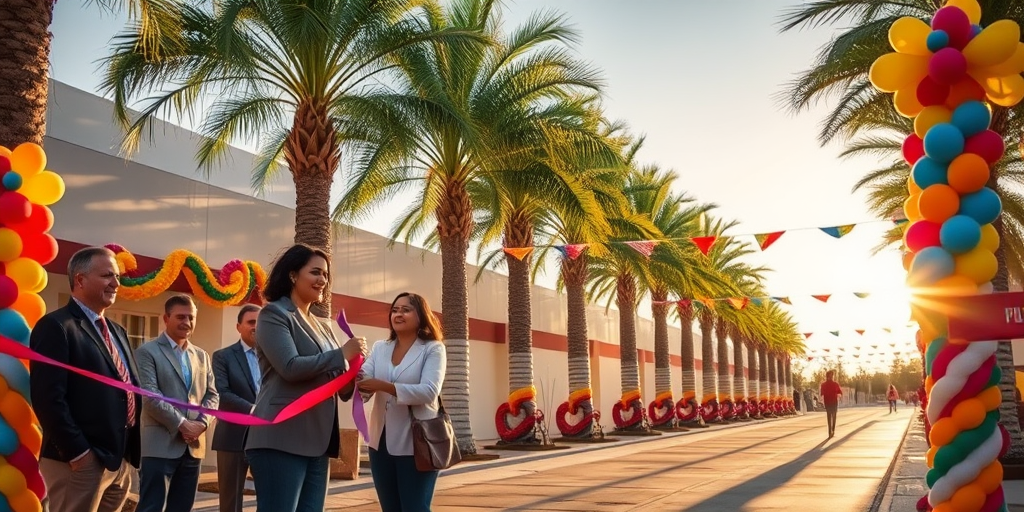McAllen Mitigates Flooding: New Facility Marks a Watershed Moment
In a resounding stride towards better stormwater management, the City of McAllen, Texas, recently unveiled its $1.5 million Northwest Blueline Regional Detention Facility, a landmark development in the region’s ongoing effort to reduce flooding. This project is part of a broader $22 million bond issue that McAllen voters approved in 2018, aimed at funding essential drainage improvements across the city. McAllen Deputy City Manager Michelle Rivera reports significant progress: where once up to 800 homes endured severe flooding, that number has now dropped to fewer than 100 homes during heavy rains, marking a substantial improvement in the area’s flood resilience.
Background on the Drainage Initiative
In 2018, McAllen residents recognized the urgent need to tackle the chronic issues surrounding stormwater management and voted in favor of a $22 million bond. The bond earmarked funds for 18 specified drainage improvement projects, with the newly inaugurated Northwest Blueline facility as the latest — and penultimate — endeavor. A final project and pump are still under design to fully realize the initiative’s goals.
The Northwest Blueline Regional Detention Facility serves as a crucial component in this extensive plan. By accommodating approximately 97,000 cubic yards of stormwater runoff, it significantly reduces the risk of flooding in adjacent neighborhoods. Additional enhancements include improvements to 5,500 feet of the Northwest Blueline Ditch, clearing 2,400 feet downstream, and stabilizing the area with permanent vegetation to mitigate future flooding risks.
Local Leaders on the Project’s Success
During the ribbon-cutting ceremony held on June 16, 2025, city officials expressed optimism regarding McAllen’s flood management future. “This facility exemplifies our commitment to developing efficient drainage infrastructure. It’s an investment in the safety and the quality of life for Valley residents,” McAllen Deputy City Manager Michelle Rivera stated. As a visible indicator of progress, the substantial decrease in flooded residences aligns with the city’s overarching goal to strengthen community resilience against storm events.
Meanwhile, City Commissioner Rolando Rios commended the community and municipal cooperation, emphasizing that these drainage improvements are foundational for McAllen’s continued growth. Rios remarked, “Valley residents deserve peace of mind. This project not only provides that but also sets a standard for civic initiatives throughout South Texas.”
The Regional Impact on the Rio Grande Valley
For the Rio Grande Valley, particularly cities vulnerable to frequent flooding, McAllen’s approach offers a model worth emulating. The strategic investments made in stormwater detention and management facilities create tangible community interest by safeguarding properties, ensuring public safety, and promoting steady economic development.
Moreover, Deputy City Manager Rivera’s reflection on the process tied into the broader context, describing challenges posed by McAllen’s flat geography and the necessity to “make the best use of our land and the slopes that we do have.” By effectively utilizing regional detention facilities, McAllen ensures sustainable and considerate growth, adapting contemporary solutions to unique environmental concerns.
The Road to Lasting Change
The implications of McAllen’s drainage improvements extend beyond immediate relief. By addressing the frequent flooding, city planners anticipate improved real estate values and increased appeal for prospective commercial investments. The community’s response has largely been positive, with residents like Charlotte Ramos expressing gratitude: “It’s reassuring to know that the city is actively working to protect our homes and neighborhoods.”
However, maintaining balanced reporting, it’s important to recognize potential limitations and ongoing challenges. While projects funded by the 2018 bond represent significant headway, complete flood risk elimination requires continued vigilance and financial commitment. Future planning involves fine-tuning operational processes and preparing supplementary funding as climate patterns evolve.
Resources for Residents and Future Prospects
For Valley residents curious about the specifics of these drainage improvements and how they might benefit neighborhoods, the City of McAllen offers various informational resources. Public forums and city planning meetings will continue to provide venues for direct community involvement, ensuring that local voices guide ongoing and future infrastructure development initiatives.
In sum, the inauguration of the Northwest Blueline Regional Detention Facility marks a pivotal moment for McAllen and the Rio Grande Valley, showcasing an effective blend of community advocacy and municipal action. As the last major piece of the 2018 bond allocation, it holds promise for a safer, more resilient future and demonstrates the power of local investment in addressing critical environmental and infrastructural needs.
For further inquiries or participation in upcoming community meetings related to McAllen’s stormwater management, residents are encouraged to contact the city’s public works department or visit the administration’s official website.







